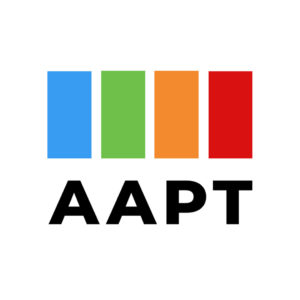CFP: AAPT Studies v.10: Teaching in Hostile Contexts

CALL FOR PAPERS
Volume 10
Teaching in Hostile Contexts
Edited By Alida Liberman
Paper Submission Deadline (extended): Friday, March 1, 2024
American Association of Philosophy Teachers Studies in Pedagogy is an anonymously peer-reviewed annual journal dedicated to publishing thematically focused volumes of original works on teaching and learning in philosophy.
We are seeking traditional essays, short personal reflections, and practical resources about the topic of Teaching in Hostile Contexts. How do we successfully teach, learn, and support each other when we face hostility stemming from governmental restrictions, unsupportive institutional policies, or other forces?
Potential topics for exploration include (and are not limited to) the following:
- Teaching topics that are treated with hostility by the state: teaching critical race theory in a jurisdiction that has banned it; teaching about abortion in a jurisdiction where it is illegal; doing diversity, equity, and inclusion work in a state that has banned it; protecting tenure against efforts by state legislatures to restrict it; etc.
- Teaching in ways that are treated with hostility by colleagues or students: teaching using topics, methods, or materials that are traditionally excluded by professional gatekeepers; teaching while inhabiting a marginalized identity; teaching from a perspective not shared by those around you (e.g., religious instructor in a secular environment or vice-versa; progressive approach in a conservative environment or vice-versa; etc.); responding to students who are hostile to you or each other; navigating contentious issues and polarization in the classroom; etc.
- Working at an institution that is eliminating programs or positions: maintaining well-being and avoiding burnout; resisting cuts to programs and positions; effective solidarity with programs or people facing cuts; balancing duties to students with the need for self-care; challenges of engaging in service work in an unsupportive institution; etc.
- Combatting hostile institutional policies: responding to surveillance of students (e.g., tools such as LockDown browser); managing increased demands to use unhelpful metrics and quantification; workplace safety and inadequate university responses to COVID-19; models for improving and sustaining faculty governance; protecting academic freedom and freedom of speech (especially for contingent or precarious faculty); etc.
- Combatting exploitation in the university workplace: strategies for self-advocacy; defenses of and/or guidelines for labor organizing and unionization; strategies for local, state, or federal political advocacy about higher education; how tenured faculty can support grad students, adjuncts, and non-TT faculty; solidarity with non-academic staff; etc.
We are interested in three types of articles for this volume:
- Traditional essays (of any length)
- Short personal reflections (of approximately 1,500 – 3,000 words)
- Practical resources for advocacy and organizing (e.g., guidelines, handbooks, toolkits, etc.)
Authors writing about sensitive topics who prefer to publish anonymously/pseudonymously to protect themselves from retaliation from their institution (or elsewhere) may request to do so.
- To submit an essay, reflection, or practical resource go to https://aaptstudies.org/submissions
- Direct inquiries about this call or volume 10 to Alida Liberman aliberman@smu.edu
- Direct general inquiries about AAPT Studies in Pedagogy to editor@aaptstudies.org
